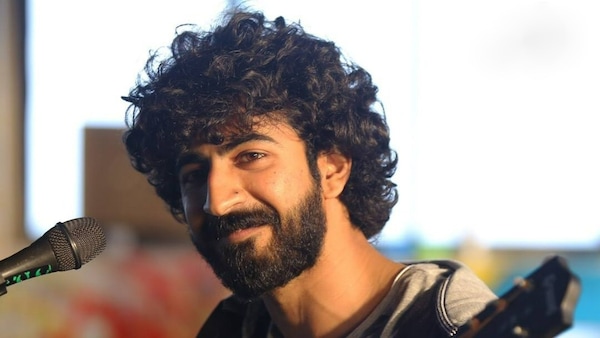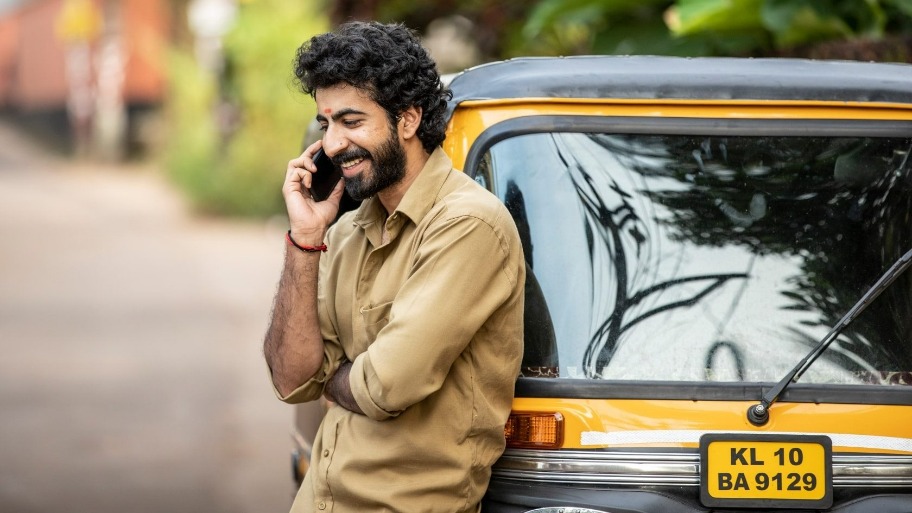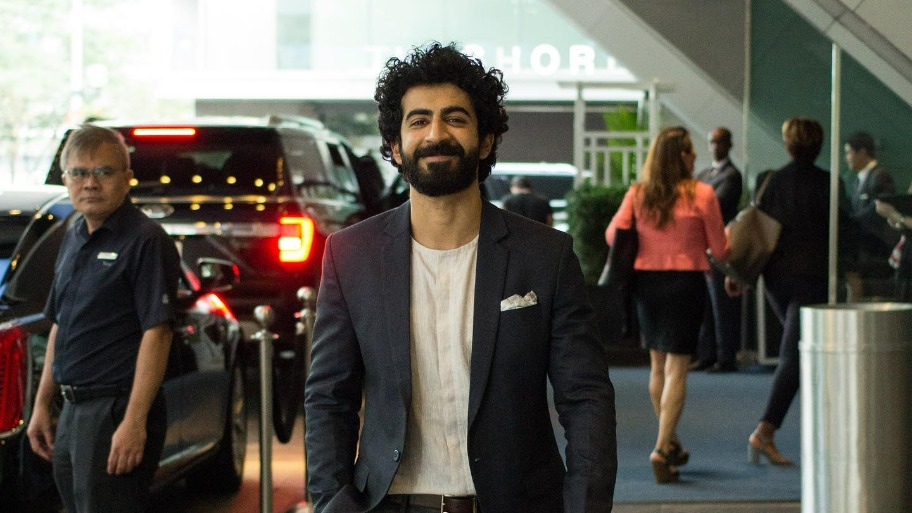Exclusive! Roshan Mathew: I keep pushing my co-actors to collaborate as much as possible
The C U Soon and Kuruthi actor talks to OTTplay about his acting processes, the impact of OTTs in Malayalam cinema and his upcoming films Darlings with Alia Bhatt and Cobra with Vikram

Last Updated: 12.34 PM, Sep 01, 2021
Malayalam actor Roshan Mathew’s career has seen a meteoric rise in the past one year – beginning with Mahesh Narayanan and Fahadh Faasil’s C U Soon, which has completed exactly a year today since its release on Amazon Prime Video. Since then, the actor has been part of several hard-hitting films such as Varthamanam, Aanum Pennum and most recently Kuruthi, in which he played the devout protagonist going up against Prithviraj Sukumaran.
While Roshan, who started off working in theatre circles in Chennai and Mumbai, tells us that he “desperately misses performing in front of a live audience”, he has also found joy in films. In this exclusive interview with OTTplay, we get the talented actor to break down his acting processes and also talk about the impact of OTTs in Malayalam cinema and his upcoming films such as Darlings and Cobra.
It has been a year since C U Soon released. The film brought Malayalam cinema to the focus as far as OTTs were concerned and that wave has not abated. But you weren’t new to OTTs as you started your career in 2015 with SonyLIV’s web series Tanlines. Back then did you expect digital content to swell to such an extent?
Not really, I didn’t expect it. Also, when I was doing Tanlines, I was just looking to do any kind of work that would give me some money. Sustenance was the priority. I got lucky with Tanlines because it had a good team to work with. Apart from that, at that point, I wasn’t thinking beyond that. But looking back, I feel it’s pretty cool that Prosjit Roy thought of a format like that, which is popular right now.
In fact, when I was in Chennai doing theatre, I had worked with Ujjwal Nair. Back in 2013-14, he had actually put up a play where a bunch of us acted in and he did a six-part web series to promote the play. One episode would air on YouTube every Sunday until the weekend of the play. So, there were a few people who thought of these formats and that for me was exciting.
You are someone who was active in theatre circles in Chennai and Mumbai. How much is that experience helping you play the kind of characters that you have been essaying recently in films such as C U Soon and Kuruthi, where both Jimmy Kurien and Ibrahim, respectively, come with their emotional baggage?
I feel like everything I know comes from there. I have always felt like all the tools I have are what I have picked up while doing theatre. I went to Drama School Mumbai after doing theatre in Chennai. I did a course there and then I started working in the Mumbai theatre circuit. That’s where I really started learning. More importantly, that’s where I discovered that I would be happy if I do this because I would constantly want myself to do better.
But once I started doing films, I have also fallen in love with this medium. I have been consistently learning to adapt and figure out the journey of a character when things are not happening chronologically the way it happens in a play. All of that adapting, manoeuvring the medium and modulating accordingly keep happening, but I feel my basics lie in theatre purely because that’s where I started. Now, I don’t know if that makes someone a particular kind of actor. Honestly, I am also waiting for scripts that aren’t as intense as the last few have been.
But while picking the intense roles, do you also come up with your own backstories for these characters?
Wherever possible, I always try to do that. I feel like that when the movie begins, it sort of helps me to have a clear idea of what a particular character has been through and what is the context you find him in when the story begins. Especially in Kuruthi, which happens over a night, everything that Ibrahim has to play with, his internal conflicts, has to do with what has happened in his past. So, I had to be clear with what that past was and what it had left him as.
Even for Jimmy Kurien in C U Soon, though the movie happens over a short span of time, I had to figure out his equation with Kevin, why is Kevin the one person he calls for help when he is in trouble, does he not have a father figure because the script sort of hints at that as you only see him speaking to his mother. I like figuring out those aspects and it helps me understand the whys and hows of what happens during the duration of the film.
In the past five years since your acting debut in Malayalam, there has been a lot of experimentation in terms of how films are made. As someone who has worked in theatre, films and is familiar with the digital format, how much has your flexibility helped you fit into these films?
I guess it’s always an advantage for a filmmaker if your actors are able to adapt to a new format. If you take C U Soon, it was so unlike anything we have all done before. Even for me, coming from theatre and a few films, it felt like a completely new medium and format. It’s great when we all go in with that trial-and-error mentality and try to figure out things as we go, by discovering new problems every day and coming up with new solutions. That sort of adaptability does come in handy.
But I also feel that in the hands of a really good filmmaker, any actor can be experimented with. I have seen so many amazing performances come out of actors when they work with filmmakers who decide to make them do something they have never done before. So, at the end of the day, a lot depends on what the filmmaker makes you do or how the filmmaker gives you the trust and confidence to make you go out there and try. I guess it helps to not be too rigid because even for them, it helps them stretch that boundary a bit more.
You have worked with actors such as Fahadh Faasil, Prithviraj and Nivin Pauly. How much do you bounce off of your co-stars?
I have had such a lovely experience of working with so many of these senior actors in Malayalam. They are very collaborative and that’s one thing I admire about them. Once we step out to do a scene, they are working purely as your co-actor. All of the stardom, aura, respect it demands and hierarchy, they leave these behind and I really enjoy that.
I feel like I keep pushing my co-actors to collaborate as much as possible. Before my co-actors arrive or I have tried working out the scene with them, I am usually lost when the director asks me what I am going to do. I have always felt that if you go in pre-decided, that idea comes from the collective memory of your previous films, the other movies you have watched, the stories you have read or the way you have imagined while you read this particular script. So, I enjoy going there and fully submitting to what my co-star is doing and then reacting to them. For me, that’s the safest way to crack a scene. That’s why I keep pushing for that and the actors who have responded brilliantly are the ones with whom I feel like I did things I did not imagine myself doing. In a movie like C U Soon, I couldn’t even see Fahadh, I was only hearing him. He was basically only cuing me my lines and even then I felt I was feeding off him so much.
There’s also a sense of unpredictability that you bring in with your characters. Say, your turn in Kappela is not something that the audience expects. Is it something that you consciously look for in your roles?
I really like the idea that when an actor appears on screen, it shouldn’t be easy for an audience to predict what he’s going to do in the story, purely based on their body of work preceding the film. I don’t particularly enjoy it when, say, there are 10 different characters and the context of the movie sets them all on the same platform, but then suddenly, one particular senior actor appears making you feel like he or she is probably going to drive the film. I like it when those norms are broken or when that situation itself doesn’t exist. Basically, whatever you have done before should disappear when the audience is watching that movie. I get excited by anything that comes up that contributes to this. Also, human beings are pretty grey, so it doesn’t make sense to always be playing good guys or bad guys.

Throughout your career you have worked mostly with relatively young directors. Last year, you also collaborated with veteran filmmaker Sibi Malayil for Kothth. What are the changes that you have observed in terms of the filmmaking styles?
I find a change with every director I have worked with. On my first day of shoot, I go with 100% trust in my director and within the first week, I try to understand his or her working style. After that, I try to bring in the collaborative process. I try to meet them halfway, and still do my thing while adapting it into the way they function. I enjoy that too, but it doesn’t work with everyone. There are some people with whom I tried everything I possibly could but I couldn’t find that comfort. And then there are people with whom, right from the first shot, it was like magic. I have only worked with Geetu (Mohandas) for those 12 days in Moothon. Before that she didn’t even know I existed but the kind of equation we had, I haven’t found with anyone else. So, when that happens it’s exciting, otherwise, you have to figure out your way.
You are also debuting in Tamil with Vikram’s Cobra, which is a big budget, ‘mass’ commercial film – something that you have not been part of before. How was that experience?
The difference in the experience itself is my biggest takeaway from that project. I still have a few more portions left in the film. It has taken me by surprise; it has fully destabilised me. It feels like unknown territory and I am trying to find out how I will find my way there.
You have also completed shooting for your Bollywood movie Darlings. What can you tell us about that?
Darlings was primarily exciting because of my co-actors Alia Bhatt, Shefali Shah and Vijay Varma. I have seen a lot of their work and they are all exceptional actors. I got to work with them for most of my scenes and that was what I enjoyed. Again, it was a completely different style of working from the way we do films in Malayalam. The working environment, the way the actors prepare for the scene, their approach – everything is different. So, I had a lot of fun watching these three people, who are exceptionally good at what they do. I was getting a kick out of working with them.
Is the buzz about Malayalam films strong in Bollywood circles too now?
There’s a lot of conversations happening about Malayalam cinema. Even after I moved down from Mumbai, I used to keep visiting the city as I have a lot of friends there who I keep working with. This time, I was there for Darlings, after one and half years of having last visited the city, and suddenly it felt like everybody had woken up to Malayalam cinema. I hear conversations where people are naming not just actors and movies but also technicians. That sort of awakening is awesome and I like that Malayalam cinema is reaching a wider audience.

OTTs have pretty much nullified the factor of initial pull in theatres that stars commanded and now given actors a strong push. How much has the advent of OTTs opened up a space for talented actors?
In a very obvious way, there is some sort of democratisation that has happened. It feels like if you are good at what you do, you will find work and it will keep you going. All of that is true and I was also focusing only on that for a long time. But recently I started realising, if you take 10 great films in a year in an industry like Malayalam, not all of those are star-driven. Most of them are by first-time directors with relatively lesser-known actors like some of the movies I have done. These are really good films with a soul that are made well and they do well in theatres after people give them a shot and discover them. I am just really concerned that those films are going to lose out on the platform that they were getting once they get a theatrical release in Malayalam. I hope those movies still reach the audience. But yes, it’s great that with OTTs coming in, everyone is sort of realigning their focus to the quality of work that is being made. I just hope it doesn’t become name or face driven.

 Premium
Premium